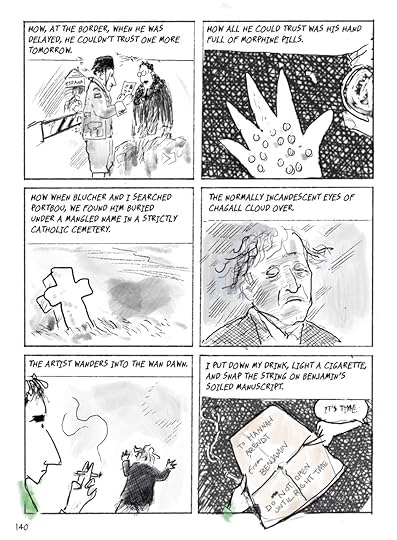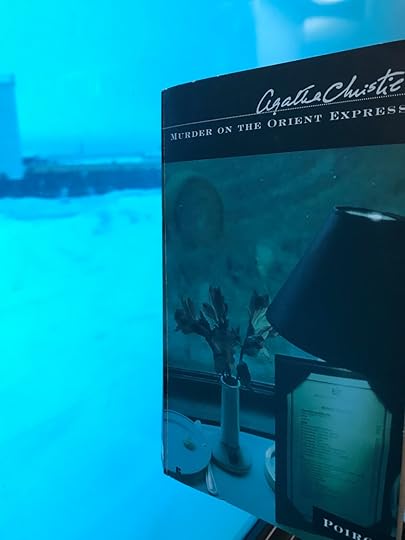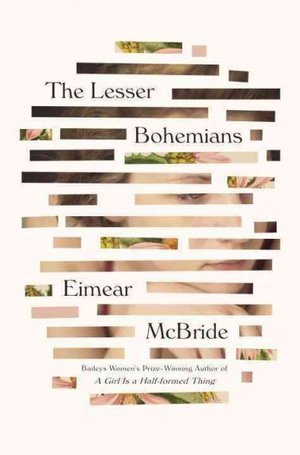Joshua Corey's Blog, page 14
February 5, 2019
100 Words: HER BODY AND OTHER PARTIES (2017), by Carmen Maria Machado

Parties are what elude us, what join and separate the many bodies of Machado’s title, the procedural bodies, the queer bodies, the mother-bodies, all the violent and violated women stalked by Law & Order’s silver hammer, talking back now as they love and vanish and erupt in mysterious blemishes and fall, photographed as if dead, never more or less than alive. Strike through the mask of first-person, convulse into the scarred beauty of these sentences, lean into these pregnant words: pops, grapefruit, bottle, blades. Sick and scared with eros, entranced into dalliance, making love in the world they never made.
February 4, 2019
100 Words: THE THREE ESCAPES OF HANNAH ARENDT (2018), by Ken Krimstein

It’s the dialogical spirit of pluralism as embodied by a green-skirted Arendt versus the unitary monoculture of Being as represented by the Magus of Messkirch, from whom Hannah makes the most equivocal of her escapes. A slangy, nearly sexy Walter Benjamin steals the show with his life and death, while Krimstein’s pencil wavers between cartoony verisimilitude and something blankly visionary, as asterisked references pile up the wreckage of proper names for the benefit of readers insensible of their loss. No one’s fool, Heidegger’s femme fatale slips out of Dichtung into history with the key to all ideologies in her pocket.
100 Words: SUPER BOWL LIII (2019)

What’s duller than two teams you don’t care about punting their way ingloriously for three hours while we put away nachos and Buffalo wings? Duller than a boy band past its sell-by date, duller than the edge of Outkast’s less interesting half puffed up in your great-aunt’s piss-yellow furs? At least we’ll always have Jørgen Leth’s Andy Warhol choking down a burger in blank silence, wondering why no one thought to provide him something to drink; we’ll always have ads for spectacle, ads for advertising, ads for no particular product but consumerism itself. Rally the team scorelessly. Go to bed.
February 1, 2019
100 Words: A HAIRCUT (2019)

Two corporate options on one block, the dreary mall snip-shop and the annoying hipster hotspot. The latter gets me a nervous noseringed woman for whom this is the first day on the job. She handles the clippers all right but takes forever with the scissors, sending her hands fluttering up behind my head like little chirping birds. A tattooed manager gripes about the radio: “I’m not having this remix.” My barber gets help for the beard from a bearded colleague and the two of them stare down the problem, looking at me but not at me. Half-price hair looks: okay.

100 Words: MURDER ON THE ORIENT EXPRESS (1934), by Agatha Christie

I read it over my mother’s shoulder, or she mine—year upon year watching her read Christies in black hardcover with a little silver skull on the spine, curled into herself, cozy in this case with Poirot and his preposterous traveling den of vipers and coincidences, trapped between snowdrifts in the mountains of Eastern Europe, a vessel for dubious nostalgias—for Europe itself, for colonialism, for violence refined on this paperback’s cover to the degree of lamp, menu, lilies, plate, and knife. The solution matters less than our readerly sadism in the name of a justice that strips everyone bare.
January 31, 2019
100 Words: IN SEARCH OF LOST TIME (1913-1927), by Marcel Proust

For a long time I used to read without finishing the labyrinthine chain of labyrinthine sentences spiraling in and around and through Marcel’s innumerable false starts through aristocracy and eroticism and art—sinuous syntax the ontology of which imposes a simultaneity of selves each jostling for the prize of the present moment which eludes them every time; meantime we are all of us getting older and less recognizable to ourselves and the thirty-six chambers of childhood are receding ever further and farther yet liable until the very last page to be revived in the flesh, giving us back the world.
100 Words: THE POLAR VORTEX (2019)

Fat flabby tongue of arctic air comes drooping down from the overheated north, displaced onto big shoulders putting my neighborhood on lockdown. Sirens throughout the day. Elegant frost patinas crawl up and down storm windows. Radiators knocking everybody’s home. Go for a walk to the lakeshore with a scarf over my face and too-thin jeans in prismatic sunshine, wind pushing me backwards, down to where a million snakes of smoke curl up from the simmering black broth of Lake Michigan giving up its stored heat a little at a time. Pretend it’s winter normal, hike home with legs on fire.
January 30, 2019
100 Words: SHELL GAME (2018), by Jordan Davis

Can poetry compete with the Internet? Why try, drones Davis: “Click here to watch / a video of otters / floating, holding hands.” But he who once lived by flarf need not die by flarf, as the poems’ self-undermining snark gets inflected by a belated compassion traveling in the wake of ideologically poisoned heteroglossia (vis-à-vis “New Words 1939-1945”), on brightest display in plainspoken translations from the Turkish in “My Orhan Veli”: “When the sea tears / who do they get to sew it up? / Yours truly.” My twin the moral mosaic poet wears his Baudelairean borscht-belt halo with flair.
100 Words: THE LESSER BOHEMIANS (2016), by Eimear McBride

Doesn’t seem quite fair: the gloriously naïve narration in particles and sentence fragments mimicking the overlap of thought and speech of an 18-year-old Irishwoman and would-be actress come to early-90s London, who doesn’t just fall for an older man but yields up every last ounce of power to him—not the affectingly rendered power of sheer youth or the convincing presentation of the sexual act on both sides of the skin, but to a tired abuse narrative wielded by a narcissist with a bad mommy, healed however by the love of a good woman in prose unbegrudging and utterly uncliched.
100 Words: MILKMAN (2018), by Anna Burns

Middle sister has a problem named Milkman: an IRA terrorist accosts her where she walks reading nineteenth-century novels on the street, striking a dark chord on the web of implication that entangles every member of her violently hyperpoliticized community lacking proper names. She’s passive every which way except for the strings of syntax that she unfolds into an enraging and beguiling narrative of which paranoia proves to be the best available interpreter. If this novel were a woman, and it is, it would tell its reader: this is what it’s like to be objectified and sustained by abjection’s dark laughter.



